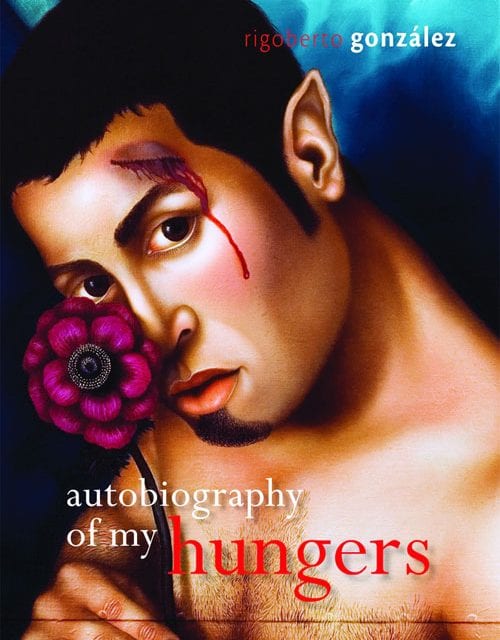Gay memoir gorges on sadness

Autobiography of My Hungers by Rigoberto González (2013, University of Wisconsin Press) $19.95; 113 pp.
When he was a young boy living with his family in Mexico, Rigoberto González’s kitchen job was to separate the piedrita (pebbles) from the beans before his mother put them in the pot. He enjoyed the small stones then; piedrita followed him into adulthood.
Although his parents’ oldest child, Rigoberto was close to his abuelo and abuela. The entire family was poor, but they “were not going to starve, despite what Abuelo had said the week before.” Despite their poverty, Abuela made sacrifices for him, especially after the family moved El Norte — to the U.S. González didn’t fully understand her gifts until many years later.
He did understand loss, however, starting with the loss of his mother, who returned from California to Mexico to die. González was still a boy, missing his mother — and that, too, was something he didn’t fully appreciate until he was a man.
Following her death and his father’s remarriage (and subsequent departure), Gonzalez continued to live with his grandparents in a tiny apartment, where all the home’s residents slept in one room. He went to school, but felt out of place, with one foot in Mexico and one in his new country — eventually left alone to finish school in New York.
In was in college where he found a girlfriend, only to come to terms with his “hungry gay body.” It was there that he tried to commit suicide, tried to starve himself, felt unloved and finally dealt with memories of embarrassment in childhood and the hurt he held from his abusive, alcoholic father. He came to realize that he could fall in love too quickly with a man, but “if the waters got rough, I could always beat him to the exit.”
Looking for a quick little pick-me-up read? You’d be half right with this book. Yes, Autobiography of My Hungers is skinny (fewer than 120 pages), but it feels like one of the longest books I’ve read this year. Gonzalez writes with deep, soul-crushing sadness. He pens with the beauty of a poet, and I’ll admit I enjoyed his nuanced observations on the tidbits of life. To find those subtleties, though, is like searching through a garden of despair, which I’m not sure is worth the leftover feeling I got when finished. Ultimately, Autobiography of My Hungers is just too full of sorrow to delight or inspire.
— Terri Schlichenmeyer
This article appeared in the Dallas Voice print edition October 18, 2013.


